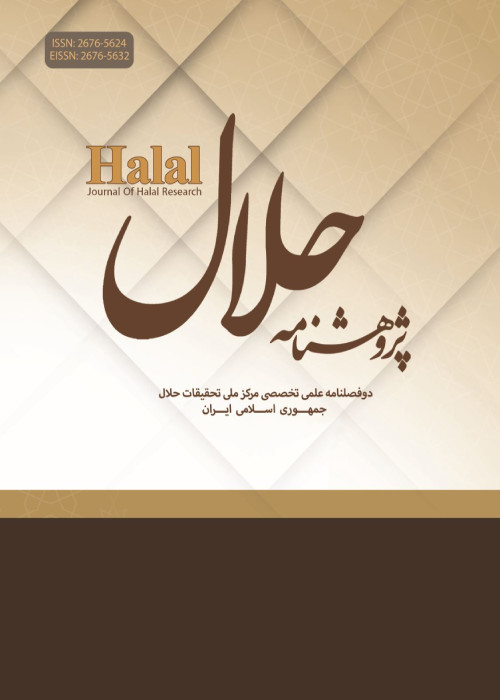Indicators of forbidden goods from the approach of religious teachings
Author(s):
Article Type:
Research/Original Article (بدون رتبه معتبر)
Abstract:
Introduction
Among the religious teachings, the use of certain goods has been introduced as haram for those who are obliged to do so, which means the necessity of avoiding them; In such a way that if they are committed, it will result in divine punishment. Although in the analysis of the process of attribution to sanctity, in the value-consumption structure of goods, different views are seen, from the point of view of some, the reference for validating and valuation of goods is only custom, and the view of Sharia is also formed on the axis of customary view, and on the other hand, some are of the opinion that the view of Sharia is independent and separate the view of tradition from valuation of goods; However, the result of both views is the authority of the view of the holy Shariah in the exploitation of goods. From this point of view, analyzing the view of the Shariah and finding a comprehensive model to recognize the haram goods is an undeniable necessity, because in its shadow, benefiting from other goods is considered permissible.Methods
This article is prepared based on the descriptive-analytical method and using the library document analysis approach.Results
The results of the present research indicate that by referring to religious sources, analyzing the language of Sharia evidence, it is possible to express criteria for the exploitation and benefit of objects, according to the functions and rational needs of each era.Conclusion
Reflecting on jurisprudence texts shows that Sharia does not have an established view in the validation and valuation of goods and accepts the same validation of tradition in the use and exchange of goods. Therefore, the idea proposition of lawgiver is exclusive when it has a different view from tradition, which has manifested towards the haram goods while expressing the characteristics of edible (impurity, carcass, forbidden meat, evil) and non-edible goods (misleading tools). The important point is that in some cases, although the linguistic of the reason that declares the use of goods as haram is absolute, it should be analyzed in a specific context and consumption.Keywords:
haram , Najis , carcass , Haram Meat , Evil , Misleading Tool
Language:
Persian
Published:
Journal of Halal, Volume:5 Issue: 3, 2022
Pages:
19 to 36
https://www.magiran.com/p2599509
دانلود و مطالعه متن این مقاله با یکی از روشهای زیر امکان پذیر است:
اشتراک شخصی
با ثبت ایمیلتان و پرداخت حق اشتراک سالانه به مبلغ 1,490,000ريال، بلافاصله متن این مقاله را دریافت کنید.اعتبار دانلود 70 مقاله نیز در حساب کاربری شما لحاظ خواهد شد.
پرداخت حق اشتراک به معنای پذیرش "شرایط خدمات" پایگاه مگیران از سوی شماست.
اگر عضو مگیران هستید:
اگر مقاله ای از شما در مگیران نمایه شده، برای استفاده از اعتبار اهدایی سامانه نویسندگان با ایمیل منتشرشده ثبت نام کنید. ثبت نام
اشتراک سازمانی
به کتابخانه دانشگاه یا محل کار خود پیشنهاد کنید تا اشتراک سازمانی این پایگاه را برای دسترسی نامحدود همه کاربران به متن مطالب تهیه نمایند!
توجه!
- حق عضویت دریافتی صرف حمایت از نشریات عضو و نگهداری، تکمیل و توسعه مگیران میشود.
- پرداخت حق اشتراک و دانلود مقالات اجازه بازنشر آن در سایر رسانههای چاپی و دیجیتال را به کاربر نمیدهد.
In order to view content subscription is required
Personal subscription
Subscribe magiran.com for 70 € euros via PayPal and download 70 articles during a year.
Organization subscription
Please contact us to subscribe your university or library for unlimited access!



